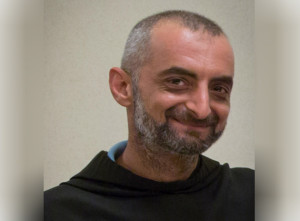
Father Dhiya Azziz, OFM – The human face of Christianity in a region dominated by chaos, Fr. Azziz, abducted twice by Islamic Jihaists in Syria, symbolizes the crisis of the region
The story of the Iraqi Franciscan friar Dhiya Azziz, OFM, the parish priest of the Syrian village of Yacoubieh, with whom all contact was lost on December 23 when he was abducted (he was released in early January), is, characteristically for that area of the world, filled with uncertainty.
Fr. Azziz, 41, a native of Mosul, Iraq (the ancient Nineveh) had been posted, after his 2002 religious profession, to Egypt and later Jordan. He had voluntarily chosen to go to serve the Latin parish of Yacoubieh, in Idlib province of Syria, more than two years ago — a particularly dangerous district which had long been in the hands of jihadist groups in charge of managing the new political “Islamist order.”
Though the priests and religious of other Christian communities had left the area, in Yacoubieh and the nearby village of Knayeh, two parishes entrusted to the Franciscans, reduced to a few hundred faithful, remained open.
Fr. Azziz had always tried to keep out of the political and military controversies related to the Syrian conflict. Instead, he continued to minister to his parishioners and to promote initiatives of solidarity between the native Christians and the many Muslim refugees who arrived in those Christian villages.
On July 4, 2015, Fr. Azziz was whisked away by militiamen who claimed they had to escort him to a short meeting with the Emir who exercises authority in the region, currently subjected to the rule of the Al-Nusra Front, the Syrian arm of al-Qaida. Later, two militants were sent to his parish to retrieve medications for the friar, who suffers from diabetes and other health problems — a detail which gave hope to his confreres of the Franciscan Custody of the Holy Land.
The Franciscans, however, were perplexed by the motive for the kidnapping. The Al-Nusra Front denied any involvement, and in fact, directed police to investigate the abduction, which eventually led to Fr. Azziz’s release. The explanation tendered was that another group of jihadists had engineered the abduction for the sake of profiting monetarily, in the hope of demanding ransom; it is well known that there are many militant groups operating in the area, whose motives and intentions do not all coincide.
Whatever the motive, Fr. Azziz was freed a week after his abduction, and returned to his ministry to the Christian community – what was left of it – in Yacoubieh.
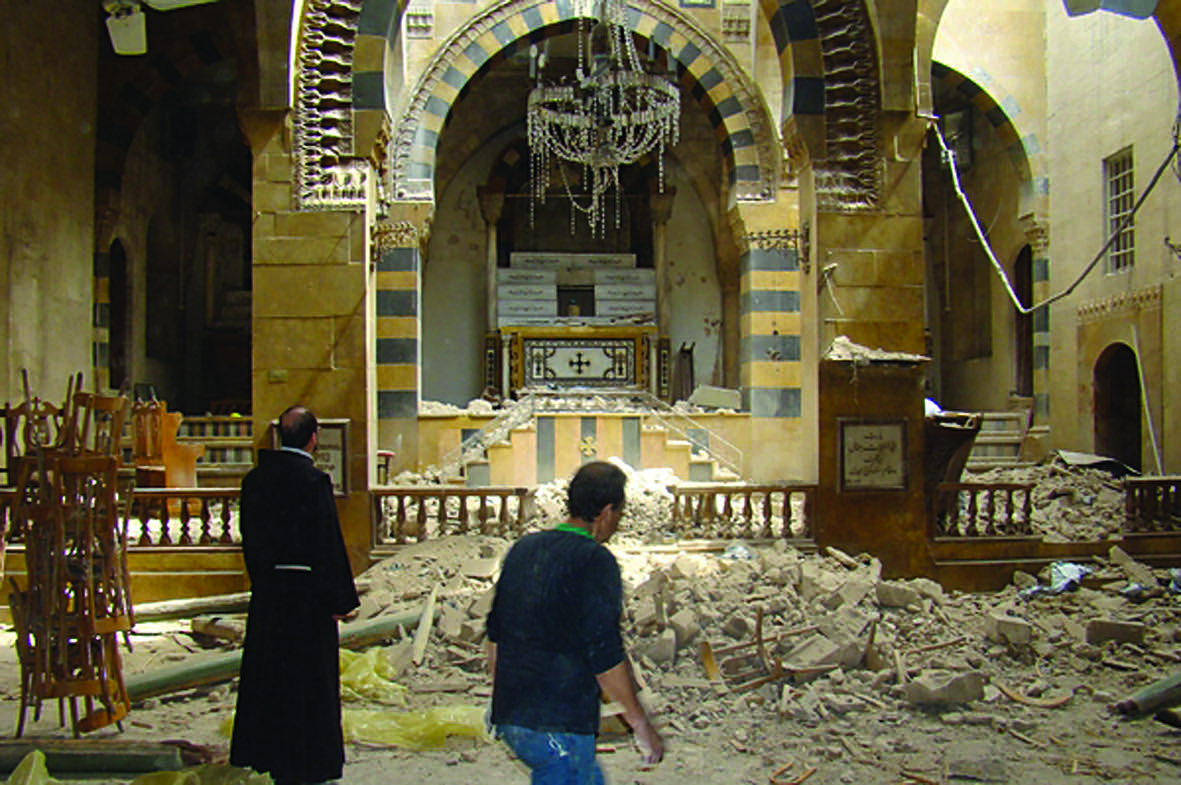
A church in Damascus damaged by bombing
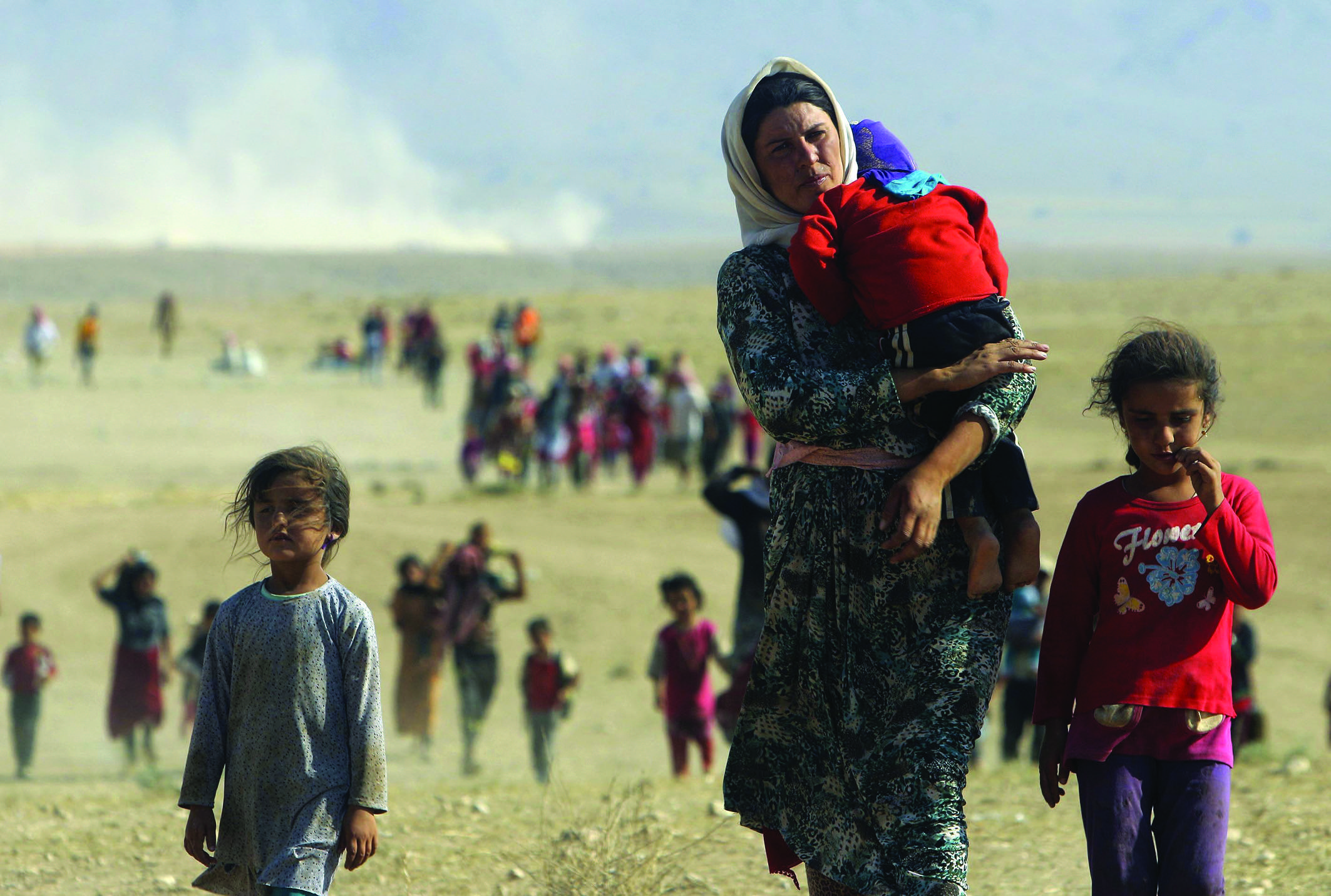
The population flees
Then, as the season of Advent drew to a close and the celebration of the birth of the Savior was almost upon us, Fr. Azziz once again disappeared.
The Franciscan Custody of the Holy Land reported on December 23 that its last contact with the priest was by phone, at 9:00 a.m. on December 23; Father Azziz was traveling by taxi with other passengers. He departed from Lattakia early in the morning for Yacoubieh, in order to arrive at his parish for the Christmas festivities. He was returning from Turkey, where he had gone to visit family members, refugees there since ISIS entered Karakosh, Iraq, his native town.
Fr. Azziz never arrived at his parish to celebrate Christmas Mass. He was again kidnapped, only to be released again on January 5. Presumably, unless he is reassigned, Fr. Azziz will return again to his parish, to face the same danger and uncertainty that he has lived with in the past.
The story of Fr. Azziz is in some ways not unique; almost numberless are accounts of such disappearances in this region of the world. Yet, Fr. Azziz stands as the human face of Christianity in a place dominated by chaos; he chose voluntarily to go to Syria to minister to a tiny flock and remained with them through fear and confusion and persecution, even after suffering the uncertain fate of being abducted. It is hard to imagine a more concrete manifestation of the calling of the Christian to imitate his Master, the Good Shepherd, who will not leave his sheep, even, if necessary, laying down his life for them.


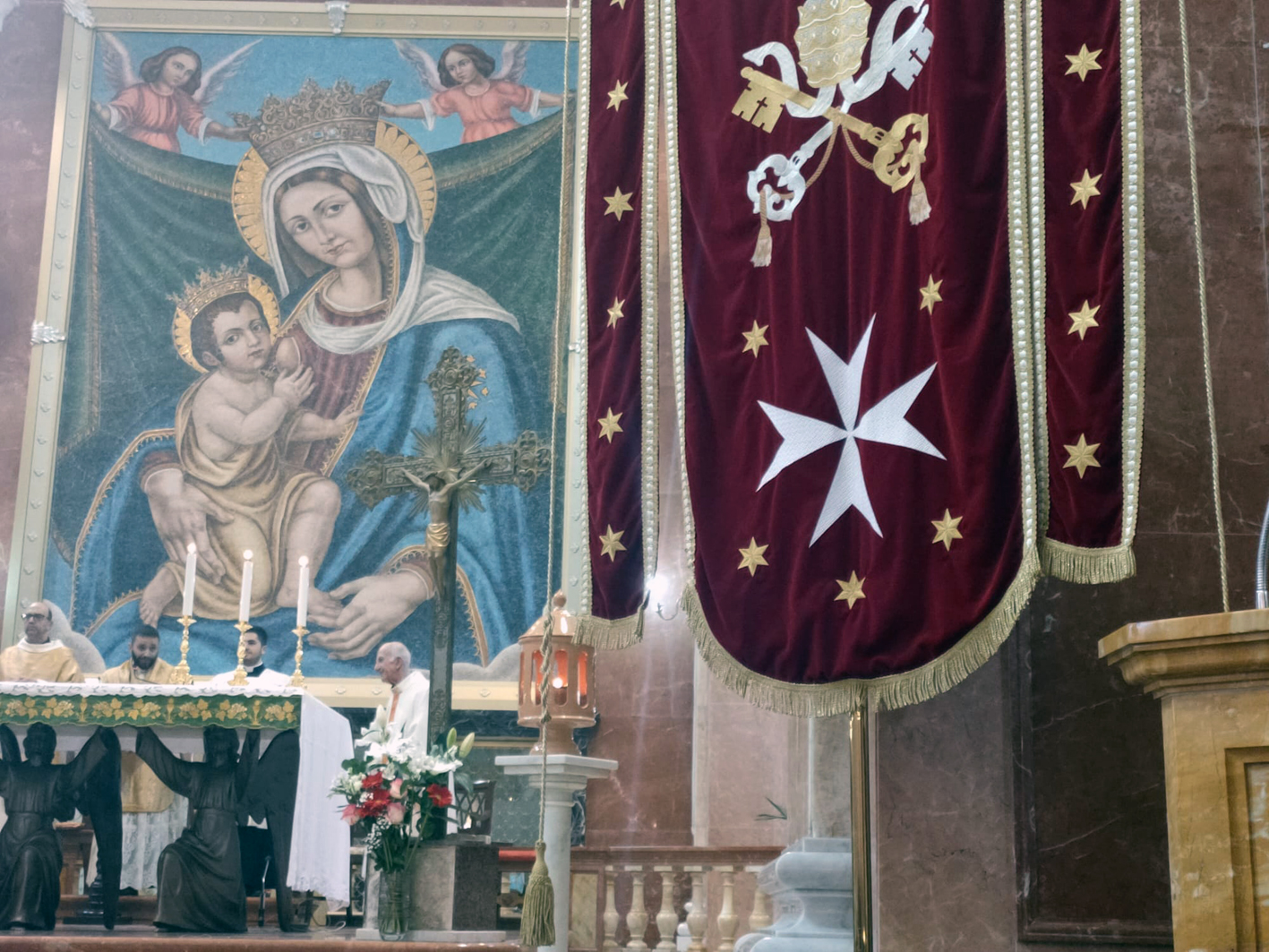
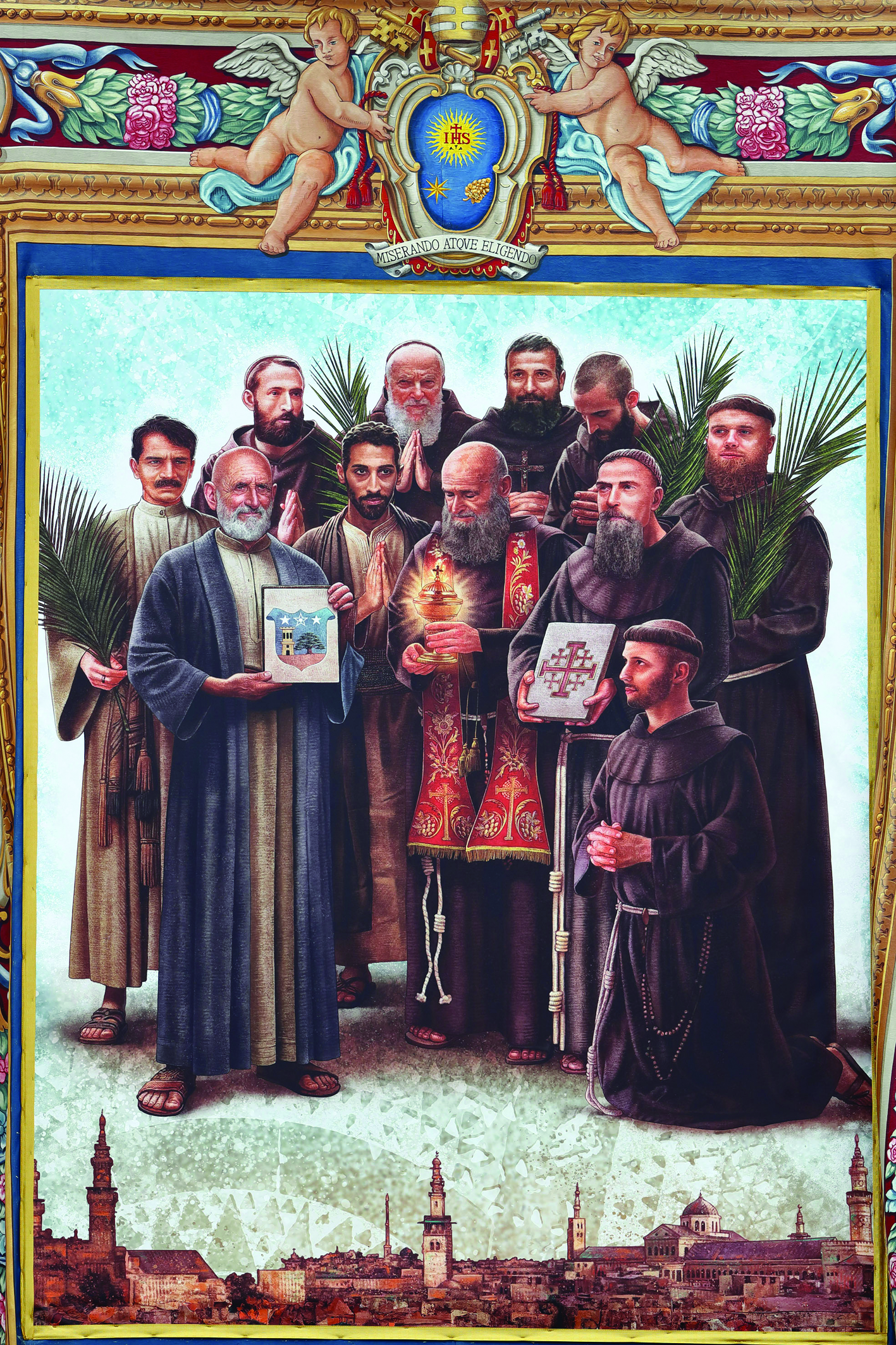
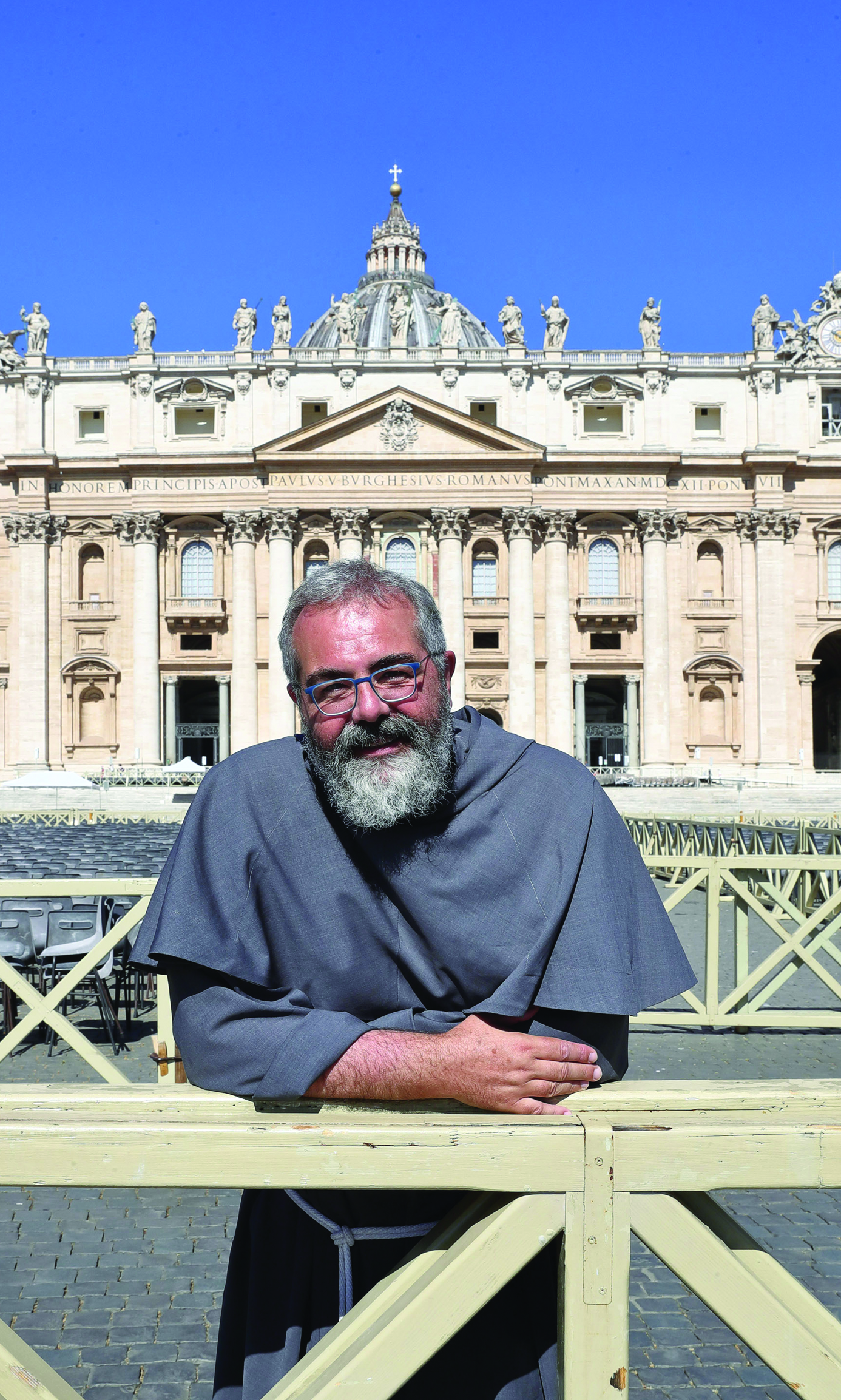

Facebook Comments